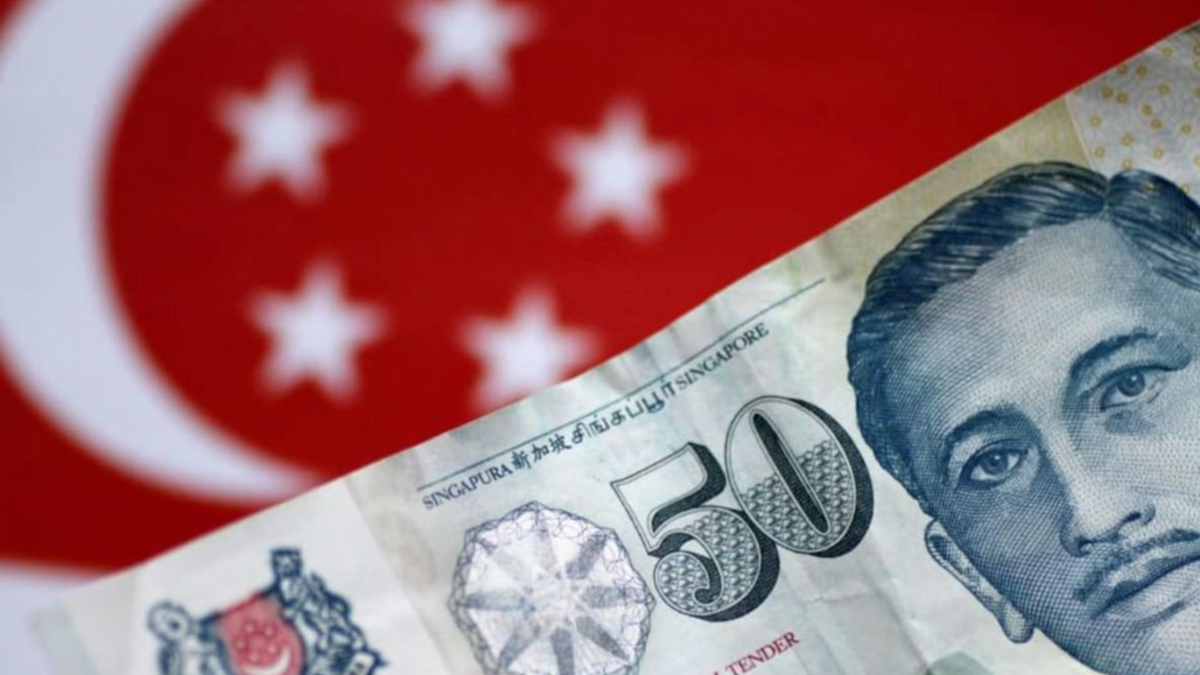On February 16 at 3:00 p.m., Singapore’s Deputy Prime Minister and Minister for Finance Wong Swee Keat delivered his Budget 2021 statement in Parliament. The statement is titled ” EMERGING STRONGER TOGETHER”. We have summarized some of the key points of the Budget in the post-epidemic era, and hopes to bring the latest information to our clients from all industries through the latest policies.
Overall Fiscal Data
The overall government budget deficit for fiscal year 2020 is projected to be $64.9 billion, or 13.9% of GDP. This is the largest budget deficit since Singapore’s independence.
As for the overall budget deficit in fiscal year 2021, it is expected to reach $11 billion, or 2.2 percent of GDP.
Last year’s deficit was the result of a contraction in economic activity that led to a drop in government tax revenue, as well as the large expenses that had to be borne to deal with the coronary epidemic, said Wong Swee Keat.
As for fiscal year 2021, Singapore’s budget remains expansionary to continue to help the nation and businesses, which are under the help of the government support schemes. The government will also continue its plans to transform the economy and workforce, strengthen the social fabric and build a sustainable future so that Singapore can emerge stronger from the epidemic.
S$11 billion “Resilience Package for Coronary Diseases”
To build a more resilient Singapore, it is imperative to safeguard public health, ensure safe reopening, and support employees and businesses where needed. The government will allocate $11 billion for this purpose under the COVID-19 Resilience Package
Of this, $4.8 billion will be used to protect the nation’s health, including promoting vaccination efforts and continuing to strengthen Singapore’s outbreak prevention and control measures.
The rest of the money will be used to extend the JSS to help companies that are still under operational pressure, and to provide assistance to the most affected companies. Additional assistance will be provided to the areas most affected by the epidemic.
In order to provide continued assistance to the areas traumatized by the epidemic, the government will invest S$700 million to extend the JSS.
- Aviation, aerospace and tourism industry pay subsidies that were scheduled to end in March this year will be available for an additional six months
- Each local employee will receive a 30% salary subsidy from April to June 2021; the rate will be reduced to 10% from July to September.
In addition to the airline industry, land transport will also receive assistance, with the government injecting S$133 million to help taxi and private car drivers.
The arts, culture and sports sector will also receive a S$45 million grant.
24 billion to help employees and businesses capture new growth opportunities
To help employees and businesses seize new growth opportunities, the Singapore government will invest S$24 billion over the next three years! This fiscal year, the Government will drive the next phase of transformation in three ways.
1. building a vibrant and innovative business community that
Maintaining strong ties with Asia and the world.
2. Leveraging capital to drive business transformation and scale up.
3. Creating opportunities for people to redesign their jobs and develop their capabilities, creativity and talents.
To help companies stay competitive in the post-coronation era, Mr. Wong said Singapore will invest in three areas.
1. Corporate Innovation Programme (Corperate Venture Lauchpad): to fund companies to develop innovative businesses.
2. the Open Innovative Platform (OIP): finding paired partners to develop solutions for businesses and public entities facing problems.
3. the Global Innovation Alliance (GIA) network: to catalyse Singapore’s collaboration with other major international innovation hubs.
Singapore will continue to work closely with Asean member countries to enhance digital connectivity and cybersecurity in preparation for the fourth industrial revolution and to create new projects such as the Asean Smart Cities Network.
S$400 million to help locals find jobs
To provide employment opportunities for 200,000 local residents this year, as well as 35,000 internship and training opportunities, a further $5.4 billion has been allocated to the SGUnited Jobs and Skills package.
Of the $5.4 billion, $5.2 billion will be invested in the Jobs Growth Incentive programme, which will be extended until the end of September this year.
Companies can receive up to 12 months of salary assistance when hiring eligible local employees. Companies hiring older employees, people with disabilities and former prisoners will receive up to 18 months of salary assistance.
Financial Support Available to Businesses
The Temporary Bridging Loan Program and the Enhanced Enterprise Finance Program helped more than 20,000 businesses secure more than $17 billion in working capital and trade loans last year.
The government will extend and expand the Enterprise Finance Initiative – Venture Capital Debt Program to ensure continued access to capital for high-growth businesses. Under the program, the maximum amount of loans supported by businesses will be increased from $5 million to $8 million.
To support business redesign efforts, the government’s co-funding ratio under the Productivity Enhancement Program-Redesign efforts will increase from 70% to 80%. to the end of March 2022.
A number of citizen’s grants will be granted
- The government will launch a $900 million Family Assistance Package to provide additional assistance to all local families, especially low- and middle-income families.
- About 1.4 million low-income Singaporeans will receive a one-off GST voucher of S$200 in June this year.
- All eligible families living in HDB flats are provided with a special subsidy of between $120 and $200 per household for rebates on utility bills. The government will also extend the rebate on HDB services and miscellaneous fees for one year.
- 780,000 Singaporean children and students under the age of 21 will receive a one-time S$200 education account top-up.
- All 1.3 million Singapore households will receive a S$100 Social Security Living Allowance voucher to spend at participating neighborhood stores and deli stalls.
- The government will allocate S$200 million to encourage companies to raise the retirement and re-employment age earlier, with the retirement age and re-employment age ceilings raised to 63 and 68 respectively from July 2022.
- To encourage more Singaporeans to donate, the government will extend the 250% tax rebate for donations to charitable organizations for two years until the end of 2023.
- The government will extend funding for the Singapore Horse Racing and Betting Authority fundraising scheme by one year. Charitable organizations will be able to apply for dollar-for-dollar funding through this scheme for fundraising activities in fiscal year 2021, capped at $250,000.
Manpower Policy Adjustment
- About Students
The government will launch the Innovation and Enterprise Fellowship Programme (IFP) to nurture domain expertise. The National Research Foundation of Singapore will offer about 500 scholarships in the next five years in the fields of cyber security, artificial intelligence and health technology.
- About Healthcare Professionals
Wong Swee Keat announced an increase in the salaries of healthcare workers. This will cover medical staff in all public healthcare institutions, government-funded community hospitals and long-term care services.
- About local employees
The government will extend the Wage Credit Scheme for one year to help companies retain or attract more Singaporean employees, and the government will fund employers’ 15% pay rises for their employees. The Capability Transfer Programme will also be extended until the end of September 2024 to support the transfer of skills from foreign professionals to locals.
- About foreign workers
The manufacturing S Pass foreign worker cap will be lowered in phases from 20% now to 18% next year from January 1, 2022 and 15% from January 1, 2023.
In order to reduce the manufacturing industry’s dependence on foreign workers, the government has decided to lower the cap on foreign workers for the manufacturing S permit. The phased reduction of the cap is to give companies a year to adjust to the change.
Adjustment of various taxes and fees
From January 2023, all low-cost goods purchased online from overseas will be subject to GST. Under the new measure, goods imported into Singapore by air or mail will be subject to GST, unlike the current rule where only goods worth more than $400 are subject to GST. In addition, non-digital services sold by overseas companies to local consumers will also be subject to GST from 2023.
Wang said that the GST will not be raised in 2021, but in order to cope with Singapore’s recurrent expenditure, the GST increase cannot be delayed for too long and must be adjusted in the period from 2022 to 2025, and should be implemented earlier. The exact timing of the increase will be determined by the economic outlook.
In line with the green plan to encourage people to use fewer cars, the government announced an immediate increase in gasoline taxes, but will also provide road tax rebates for all types of vehicles from August this year to July 31 next year.
- An increase of S$0.15 per liter in the ultimate petrol duty for petrol grade 98 and above.
- The Ultimate Petrol Duty for Class 92 and 95 petrol will increase by S$0.1 per liter.

